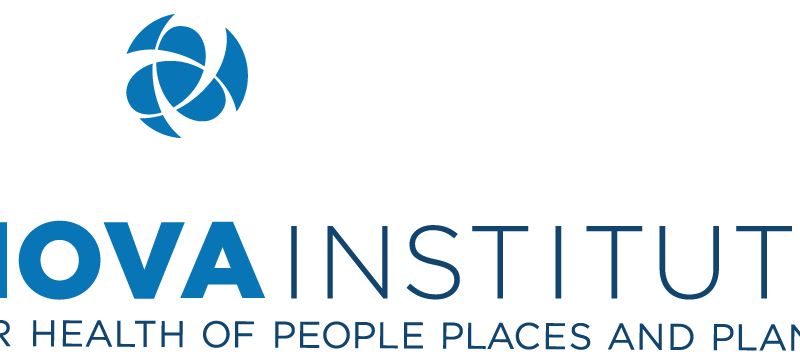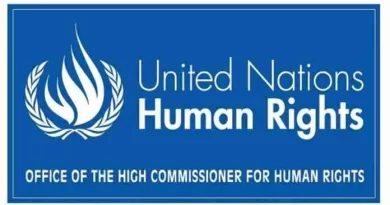2024 Nova Media Fellowship Program (up to $100,000)
The Nova Media Fellowship supports print, broadcast, and digital journalists proposing to immerse themselves in the health field and complete media projects that acknowledge and explore the many factors that promote well-being, prevent disease, contribute to healing, and increase an individual’s ability to flourish and live a fulfilling life. At this time, the Media Fellowship is not inviting book proposals.
The Media Fellowship program aims to give recipients the time, space, and resources to research, write, and speak about issues that validate and show the importance of an expansive health framework. Media Fellowships are one year in duration and full-time, allowing recipients to undertake their projects in a comprehensive and creative manner. The Nova Institute strongly prefers that Media Fellows take a leave of absence from any organization where they are currently employed during the fellowship period. Projects begin in fall 2024, ideally on September 16, although the start date can be flexible to accommodate individual Fellows.
The 2024 Media Fellowship award is $100,000 over 12 months, with up to an additional $7,500 reimbursed for travel expenses per Nova’s travel policies. The award is intended to support a Fellow’s living expenses, project-related expenses, conference fees, health insurance, etc. We will separately cover costs associated with attending Nova Institute-organized meetings, workshops, or events. The fellowship does not fund enrollment for degree or non-degree study at academic institutions.Media Fellows have editorial control over their projects and conduct their work independently. They agree to work with publications to include a credit in each published or broadcast piece developed during the fellowship noting that they are or were Media Fellows of the Nova Institute for Health.
Application Guidelines
Project Focus
Applicants for the Media Fellowship have considerable latitude in determining the focus of their proposed projects. All proposals, however, should show an appreciation for the multitude of factors, at many levels, that affect health and thriving, and connect the dots between these factors to take a broad view of health. Proposals should resist reductionist approaches or a narrow focus on a single issue that is unconnected to a wider context. Proposals should when possible take a solutions journalism approach that demonstrates rigorous, evidence-based reporting on responses to social (and health) problems. Ideally, the work could help key audiences — from clinicians and nonprofit and business leaders to policymakers and advocates — recognize the multiple factors that affect health and adopt practices and policies in response.
Applicants can read about our 2023 Media Fellows and view their published work.
Mental Health and Emotional Well-being
We are in the midst of a growing, global mental health crisis. The COVID-19 pandemic exacerbated an already significant mental health decline and a staggering increase in “deaths of despair” from suicide and drug and alcohol use. Psychological stress is rising in young people, with increasing pediatric mental health diagnoses and acute care hospitalizations. A loneliness epidemic underscores growing disconnection from ourselves, our communities, and our natural environments. The climate crisis magnifies persistent inequities and threatens lives and livelihoods worldwide.
For these reasons, the Nova Institute has a particular interest in mental health and emotional well-being. We encourage proposals that address or examine mental health, using a science- and evidence-based approach, and how mental health and emotional well-being connect to personal, community, and planetary health.
Health Inequities
Long-standing, inadequate, and harmful social, economic, and environmental conditions and systems have had an adverse impact on individuals’ health and created significant inequities. The Nova Institute welcomes projects that recognize and/or examine the political, historical, and social dynamics that have led to health inequities experienced by the BIPOC (Black, Indigenous, People of Color) community and people who are medically underserved such as refugee, migrant, and immigrant populations; people with disabilities; etc.
Transdisciplinary and Inter-Sectoral Approach
To understand the many factors that affect health and well-being, and the intertwined connections among them, we champion a transdisciplinary approach and encourage projects that tap the expertise of multiple disciplines. Compelling projects may also explore the current or potential role of various sectors—e.g., public, business, medical, and education sectors—in advancing or undercutting health.
Eligibility Criteria:
Experience
Ideal applicants are full-time journalists with established records of publication or broadcast in local, regional, or national markets or among targeted audiences or constituencies and have relevant full-time experience. Proposals may cover international issues and involve international travel, but in 2024 we are accepting applications from U.S.-based journalists only.
Society and the medical community have long ignored systemic racism, economic injustice, and other factors that affect health and hurt marginalized groups. We believe that these voices must be heard and should be involved in our work, and we strongly encourage applications from people of color, women, LGBTQ+ people, or other members of other historically marginalized communities.
Time Commitment
Fellowships begin in Fall 2024 (ideally by September 16; the start date is flexible), and last for a period of 12 months. A Media Fellow must be able to devote at least 35 hours per week to the proposed project, and the project should be the Fellow’s only full-time work during the fellowship term.
We will hold bi-monthly check-ins with Media Fellows and expect Media Fellows to attend annual meetings, including one scheduled for September 29-October 2, 2024, in Baltimore, Maryland. We also strongly encourage participation in monthly online Scholars and Fellows meetings as well as other Nova events such as our “Nova Campfires” and annual conference, typically held virtually.
Project Deliverables
We recognize the value of flexible support, designed to encourage unbounded curiosity and to allow Media Fellows to follow leads suggested by their research and reflection. Nevertheless, applicants must propose deliverables or products that reflect a year’s worth of full-time, ambitious work. In all cases, deliverables must aim to reach the targeted audiences via publication and dissemination during the term of the fellowship. We will not support projects that involve only research that simply lays the groundwork for future use.
Application Process
Journalists interested in being considered for a Nova Media Fellowship should ensure they meet the eligibility criteria listed above and submit an application that consists of a written proposal, resumé, and work samples, detailed here.
Applications should be emailed to mediafellowships@novainstituteforhealth.org no later than 11:59 pm EDT on May 28, 2024.
Six to eight finalists will be chosen from the pool of applicants. A selection committee, comprising Nova Institute staff, Scholars and Fellows, Media Advisory Council members, and other media specialists, will interview each finalist. Finalists selected for interviews will be asked to provide one to two brief (one page maximum), professional letters of recommendation. The Nova Institute will then select up to two individuals as our 2024 Media Fellows.
Application and Selection Timeline
Media Fellowship Announcement: April 15
Informational Q&A Zoom call: May 13, 2024 at 3 pm ET (register here)
Applications Due: May 28 (11:59 p.m. EST)
Finalist Interviews: Mid-July
Notification for Selected Fellows: Late July – Early August
Fellowship Term Begins: September 16 (flexible)
Scholars and Fellows Meeting (in-person): September 29-Oct 2
Note: all dates except the application due date are subject to change at the Nova Institute’s discretion.




